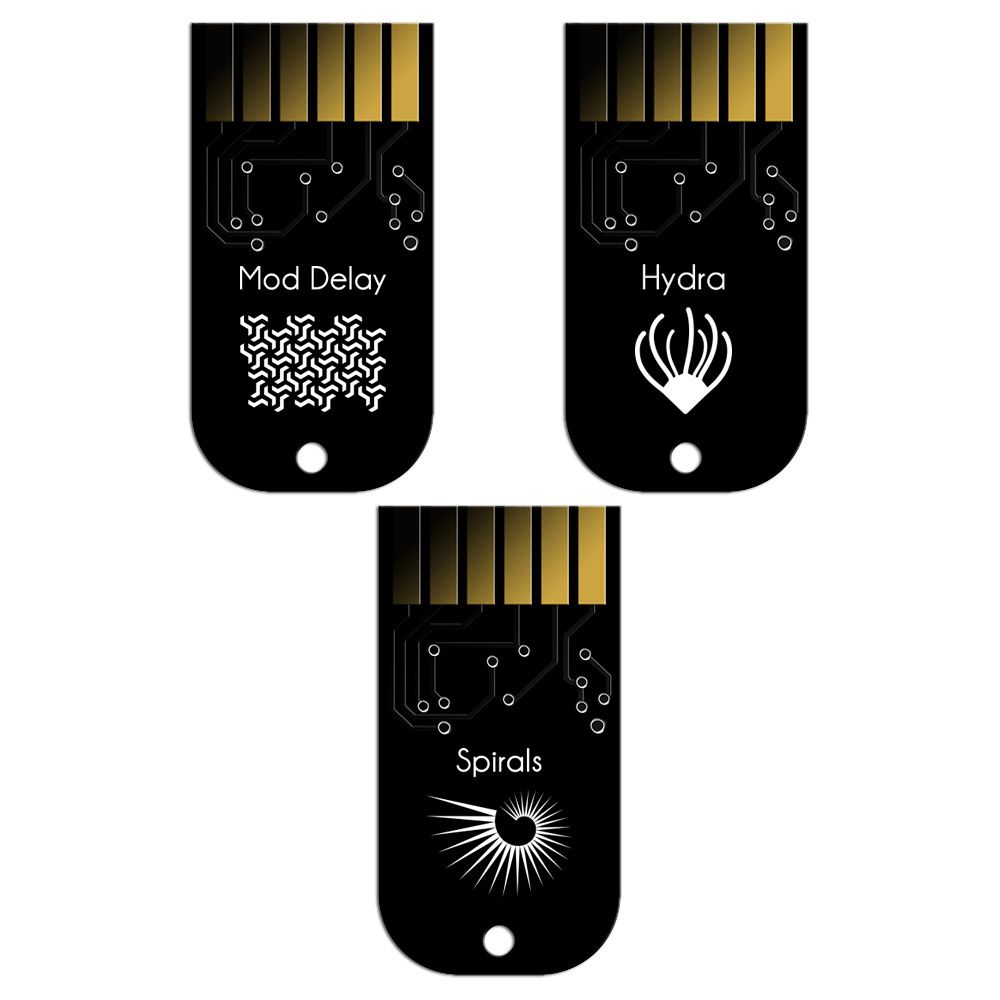Tiptop Audio cartridge for Z-DSP - Time Domain Bundle
Tiptop Audio cartridge for Z-DSP - Time Domain Bundle
Couldn't load pickup availability
Tiptop Audio Time Domain Bundle is a set of three plug-in cards for the Z-DSP voltage-controlled digital signal processor eurorack module (sold separately). The three cards included in this bundle are Mod Delay, Hydra and Spirals.
Mod Delay
Modulated Delays brings various forms of animation to your delay lines. These types of algorithms further extend the signal path of delay effects with extra processing and routing of the audio signal. The sonic results put the Mod Delay effects in a category of their own.
Each program adds different processing like diffusion, chorus, panning and other modulation to the basic mono or dual delay line structure. The two modulator programs are intended for use with external CV, opening them up to the vast modulation possibilities of your modular synthesizer.
Mod Delay comes loaded with 8 presets.
Hydra
Hydra is a multi-armed DSP creature tapping its tentacles into a buffered delay line and creating a range of multi-tap rhythmic and spatial delay effects. The Spread parameter sweeps through rhythmic variations, allowing some of the programs to bridge the gap between single delays and reverbs by using diffusion while others use taps to create rhythmic patterns.
The basic Hydra algorithm sums the inputs to mono and writes the signal to a single delay line. Multiple output taps are taken from the delay line and spread across the stereo outputs. Each program adds additional features like panning, filtering, pitch shifting and diffusion to create a unique Z-DSP Hydra experience. The last two programs add external clock input for more precise sync to the beat.
Spirals
Spirals is a pitch and multi-tap delay card. This card uses numerous multi-tap delay techniques in combination with dual pitch shifters to create a wide range of harmonizing choruses, echoes and harmonic reverb sounds.
Programs on this card derive from the complex algorithms found on high-end studio effects processors, which, while powerful, have a complex editing process. On Z-DSP, all of the power of the internal code is controlled by three simple adjustments for sculpting the sound, making the experience more about performance and live tweaking rather than navigating through dozens of menu pages.
Share













